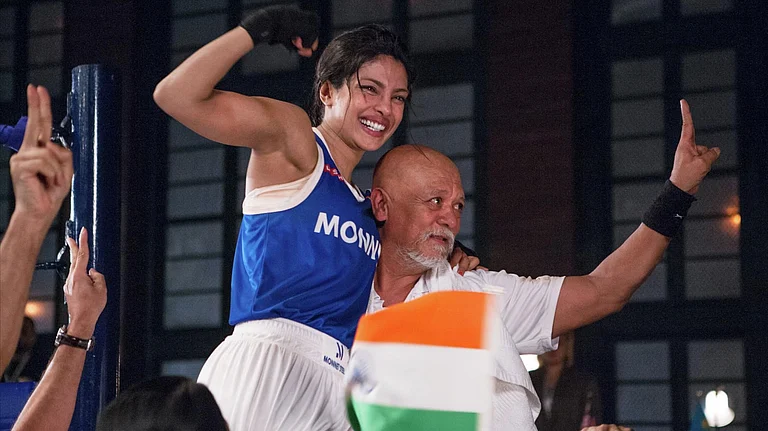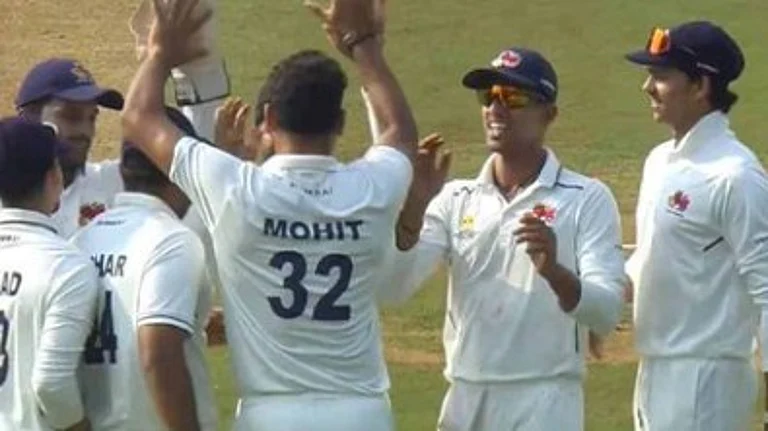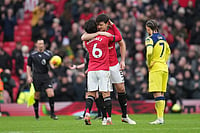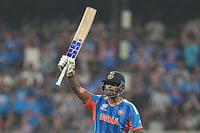How Kaavya Viswanathan got inspired, got paid and got caught plagiarising is a 500,000-dollar-question. It is too easy to slam the teenager who, no doubt, was pushed by her immigrant parents in high-voltage America to achieve, excel and prosper, taking the Harvard highway to the temples of Wall Street. In all the reporting in the press of her fall from the dizzying heights, there is an undeniable strain of "gotcha" journalism with a trace of putting the immigrant girl in her place just as the earlier narrative was tinged with jealousy.
Let’s be honest. Many of us were a trifle jealous when Kaavya, barely 17 summers old, was handed a fortune by Little, Brown to churn out a novel based on the reading of just one chapter. After all, how can someone command a sum of $ 500,000 when in the school of life, they haven’t even begun? She wasn’t out of college, barely even in college when in the wiser judgement of the publishing hounds, she was declared the next it, the sensational new writer who was going to ride fearlessly into the annals of "chick-lit." Alas, that was not to be. What she will end up in are dreadful stories exchanged over drinks and samosas at desi parties. Parents will warn their children not to be like Kaavya. She will become a symbol of shame for the community, a measure of wrongful ambition, a metaphor for non-success.
Harsh though it may sound but the Indian American community is unforgiving and demanding of its children. It wants to celebrate success, not mourn failures. In its sociology, Kaavya’s crime is particularly egregious because it is so high-profile. She wasn’t some blue collar South Asian in New York abusing his wife. Those people are easier to excise from one’s worldview but Kaavya was the cream of the crop, destined to add to the dossier of achievements. But she detracted from it.
How could she do this? I can offer an obvious scenario.
Kaavya’s grew up in an upper middle class Indian American family environment where one can assume that both parents -- professionals and high achievers -- often told her of what it means to have the opportunities that she does in America. She must show herself to be worthy of the special privilege, something her cousins in India don’t enjoy. Admission into an Ivy League school, preferably Harvard, was expected at the end. Her parents even recruited a specialist to help write college applications and coach her for interviews. It is this specialist who put Kaavya in touch with her book agent.
Perhaps, having a book to her name before a bachelor’s degree was seen as just another "opportunity" by the young woman. After all, on the list of achievements it certainly would be the sexiest tag. In the hyper-competitive environs of Harvard, where most professors are stars, where big names jut out from corridors like headlines on a bad day, authorship of a novel at the tender age of 17 would give her traction. It would get her noticed and who knows may even please her parents! So she did what many have done before her and many surely will do after her -- lift from what’s already on the shelf. The hard labour of writing, rewriting and editing out didn’t fit the schedule of a young woman in a hurry. She had loads to do. Like take classes, get A’s and have fun. She probably didn’t even think of the moral and ethical questions involved in copying, often verbatim, passages from her "favourite" author, Megan McCafferty’s books (and now as it seems, possibly from Salman Rushdie, Meg Cabot, and Sophie Kinsella as well). As Salman Rushdie points out, pushed by the needs of a publishing machine, the rush evidently was too much.
The novel became another "assignment’ for an eager student who might copy from obscure books in the library hoping the professor won’t know, notice or question the sudden improvement in writing skills. I am not rationalising or trying to excuse Kaavya Viswanathan’s literary crime -- or is it a misdemeanour? -- but trying to guess at the inner workings of a driven mind. My only hope is that she would write again and this time for real. How Opal Mehta Got Kissed, Got Wild, and Got a Life was a false start.






















